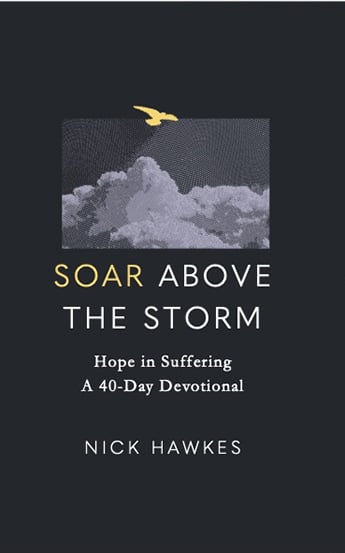Recent scientific research into black holes suggests that there is a reality beyond “space-time” in which space, matter and time do not exist. If that wasn’t weird enough, research into quantum physics suggests that consciousness has a part to play in calling physical existence into being. Here’s the thing: Both of these findings are supportive of the idea that God exists.
It is significant that a lot of convictions from top scientists are now coming together to form a picture that theologians have long recognised, and which causes them to smile. Scientists have been amazed at the level of “fine-tuning” of the forces of nature (to a level of multi-trillionths) that have allowed life to develop in the universe. They have also wondered why our minds have been “tuned” to a degree that gives us the ability to unlock the secrets of the universe.
God is a mathematician of a very high order
So let me take you on a whistle-stop tour of some scientific and philosophic thinking that will lead us to some exciting conclusions about God.
Kurt Gödel (1906-1978), a logician, mathematician and philosopher, said that science is not exact. It speaks in analogies. Maths is simply a language. Therefore, you can’t define things exactly with maths. Maths can’t prove anything in a closed system.
But before you surrender to the postmodern despair of there being no truth to believe in, let me hasten to say that maths is still pretty useful and that it does shine a light on some truth. Let me refer you to the distinguished physicist, Paul Dirac, who said: “God is a mathematician of a very high order, and he used very advanced mathematics in constructing the universe.” The theoretical physicist, Eugene Wigner, expressed a similar thought. He spoke about the “unreasonable effectiveness of mathematics in the natural sciences”.
Some scientists (both Christian and non-Christian) are “critical realists.” Critical realists don’t believe we ever see the “real” world; we only see approximations and models of the real thing that have been filtered and fermented by our fallible human perceptions. Of course, there has to be a lot of truth in this. Science is forever marching onwards, giving us new insights. But again, you wouldn’t want to push this too far. Many basic scientific truths have remained “true” for a very long time. Whilst some truth has had to be revised, other truths have provided a sure foundation for new truths to stand on.
The English particle physicist and theologian, John Polkinghorne, was fond of saying: “epistemology models ontology”. In other words, how we know things to be true (epistemology) gives a fair approximation of the essential nature of what actually exists (ontology). If this is so, then his conviction very much supports the idea that God wants us to know a bit about him through his creation (Romans 1:20). Reality is therefore not a complete illusion.
Do philosophy or theoretical physics help us know God?
This brings us to Ludwig Wittgenstein. He was a philosopher who worked primarily in logic, and mathematics. Wittgenstein is considered to be one of the greatest philosophers of the modern era. The trouble is, people can’t actually agree on what it was that he said – particularly in the latter half of his career. From what I understand, his central conviction was that philosophical speculation was a complete waste of time! Now, that’s a conviction that would put a lot of university philosophy departments out of business, but is he right?
Again, if we believe that God wants his creation to point to him and give us an idea about meaning, morality and destiny, we can’t say that philosophy (that takes seriously the idea of telos, i.e. ultimate goal) is a waste of time. So, sorry Ludwig.
“Philosophy without God is pointless”
Finally, let’s look into the fertile mind of the theoretical physicist, John Archibald Wheeler (1911-2008). He was the chap who popularised the term “black hole”. He also coined the term “participatory anthropic principle”. Now, before your brain has conniptions, let me explain. The “strong anthropic principle” is the conviction that the universe has been designed to allow intelligent life to develop. (As I said earlier, the apparent “fine-tuning” of the universe that has allowed us to exist, has convinced many scientists that this is the case.) The wrinkle that Wheeler has added is this: Because a divine “mind” wanted humankind to develop, we have become “participants” in the overall plan. This, of course, fits beautifully into Christian thinking.
So, what can we say to wrap up?
Gödel says that maths can’t prove anything in a closed system. Wittgenstein said that philosophic talk is meaningless. What both men are touching on is the fact that a created being (us) cannot fathom the ultimate reality of the system it exists within, because he/she is smaller than it. In order to comprehend the system (the universe/s and life), we would need to be bigger than the system (in the same way a tapeworm in the gut of a pilot flying a jet fighter cannot comprehend what the pilot is up to).
Wittgenstein and Gödel’s suggestion that we can’t know ultimate things would be totally convincing if it were not for one thing. What if God wanted humankind to understand some profound things about the universe (Psalm 19:1-4). If this were so, then it would make philosophy and mathematics valid enterprises – if conducted with at least a nod towards “telos” (ultimate goal), i.e. God. In other words, philosophy without God is pointless – which probably explains the desperate sense of meaninglessness, lostness and senselessness felt by many modern atheistic philosophers.
Science is giving us good reasons to believe that meaning exists. And that’s good news.

Dr Nick Hawkes is a scientist, pastor, apologist, writer and broadcaster. He also describes himself as an absent-minded, slightly obsessive man who is pathetically weak due to cancer and chemo, who has experienced, and needs to experience, the grace of God each day.
Nick has written a book Soar above the Storm in which he draws on his experience of cancer to encourage anyone walking through a storm in life to find rest and hope in God. It offers a 40-day retreat to be refreshed and strengthened and find deep peace in God. Order it at Koorong.
He blogs and records podcasts at nickhawkes.net
Nick told his life story to Eternity here: Deadly storms, heroin addicts, cancer and my faith.
Email This Story
Why not send this to a friend?



